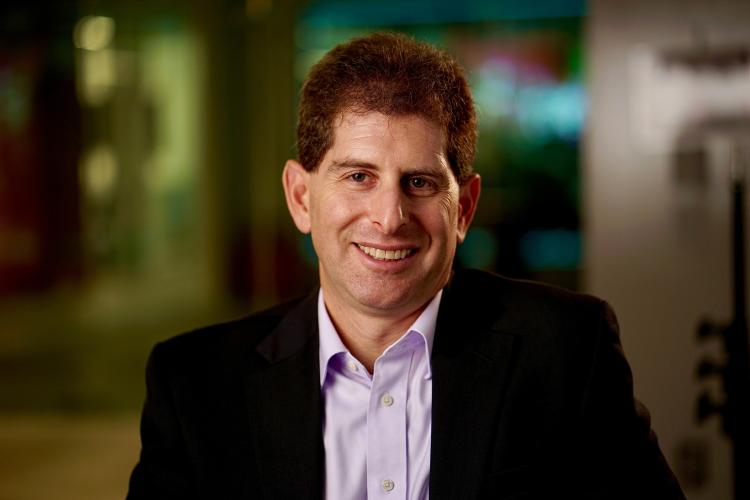
Bryan Reimer, Research Scientist at the MIT Center for Transportation & Logistics’s (MIT CTL) AgeLab, has been appointed by the US Department of Transportation (DOT) to the Transforming Transportation Advisory Committee (TTAC). The committee advises the DOT and the Secretary of Transportation about plans and approaches for transportation innovation.
Reimer, who has been at MIT since 2003, joins a team of 27 experts on the committee chosen to provide diverse perspectives across sectors, geographies, and areas of expertise. Their advice will help ensure that transportation's future is safe, efficient, sustainable, equitable, and transformative.
A mobility futurist and expert in the human element of assisted and automated vehicle safety, Reimer collaborates with industries worldwide on behavioral, technological, and public policy challenges associated with driver attention, driver assistance systems, automated driving, vulnerable road users, and electric vehicles. These varied interests are reflected in Reimer’s wide-ranging research projects.
He is the Founder and Co-Director of AgeLab’s Advanced Vehicle Technology (AVT) Consortium and Advanced Human Factors Evaluator for Attentional Demand (AHEAD) consortium. AVT launched in 2015 and is a global academic-industry collaboration on developing a data-driven understanding of how drivers respond to commercially available vehicle technologies. The consortium focuses especially on how systems perform and the impacts of technology on driving behavior and consumer attitudes. AHEAD is an academic-industry partnership launched in 2013 that is working to develop a framework for driver attention support and safeguards that can be operationalized.
In 2018, Reimer delivered aTEDx talk entitled “There’s more to safety of driverless cars than AI.” The talk focused on transparency in the deployment and operation of driverless cars and on the “trusted information consumers need” before these automated vehicles become the future of mobility. He believes the public and private sectors must work together to ensure consumers' safety on public roads.
“Working at the intersection of technology, driver behavior and public policy for over 20 years, I have long recognized that neither the public or private sectors can solve these complex issues independently,” says Reimer. “A safer, greener, convenient, comfortable, and more economical mobility system will require a deeper collaboration between the public and private sectors. Industries also need appropriate government support and oversight to help them develop, produce, and deploy new technologies that optimize the impact on society. I hope that my work with the committee can highlight needs in this area.”
In a statement, Secretary of Transportation Pete Buttigieg remarked on the committee’s mission. “We are living in a time filled with unprecedented opportunity and unprecedented challenges in transportation,” he said. “The deep expertise and diverse perspectives of this impressive group will provide advice to ensure the future of transportation is safe, efficient, sustainable, equitable, and transformative.”
The TTAC’s is tasked with exploring and considering issues related to:
- Pathways to safe, secure, equitable, environmentally friendly, and accessible deployments of emerging technologies
- Integrated approaches to promote greater cross-modal integration of emerging technologies, particularly applications to deploy automation.
- Policies that encourage automation to grow and support a safe and productive US workforce, as well as foster economic competitiveness and job quality
- Approaches and frameworks that encourage the secure exchange and sharing of transformative transportation data, including technologies and infrastructure, across the public and private sectors that can guide core policy decisions across DOT’s strategic goals
- Ways the DOT can identify and elevate cybersecurity solutions and protect privacy across transportation systems and infrastructure
- Other emerging issues, topics, and technologies
The AgeLab has deep expertise in many of these areas with a multidisciplinary research program that includes Home Logistics and Services and Transportation and Livable Communities topics. It works with businesses, government, and NGOs to improve the quality of life of older people and those who care for them. Personal mobility and the availability of delivery systems are critically important elements of this work.
MIT CTL, which AgeLab is a part of, also offers expertise in freight transportation. For example, MIT CTL’s FreightLab has conducted groundbreaking research with industry partners on issues such as truck drivers' performance, truck transportation availability, and the impact of natural disasters on freight movement.
Transportation research is more critical than ever, given the advance of automation and innovations such as AI-based management systems. Also, there is increasing demand from consumers and governments to make the movement of goods and people more efficient and environmentally friendly.
TTAC members will serve two-year terms and may be reappointed. The committee’s first meeting was held on January 18.